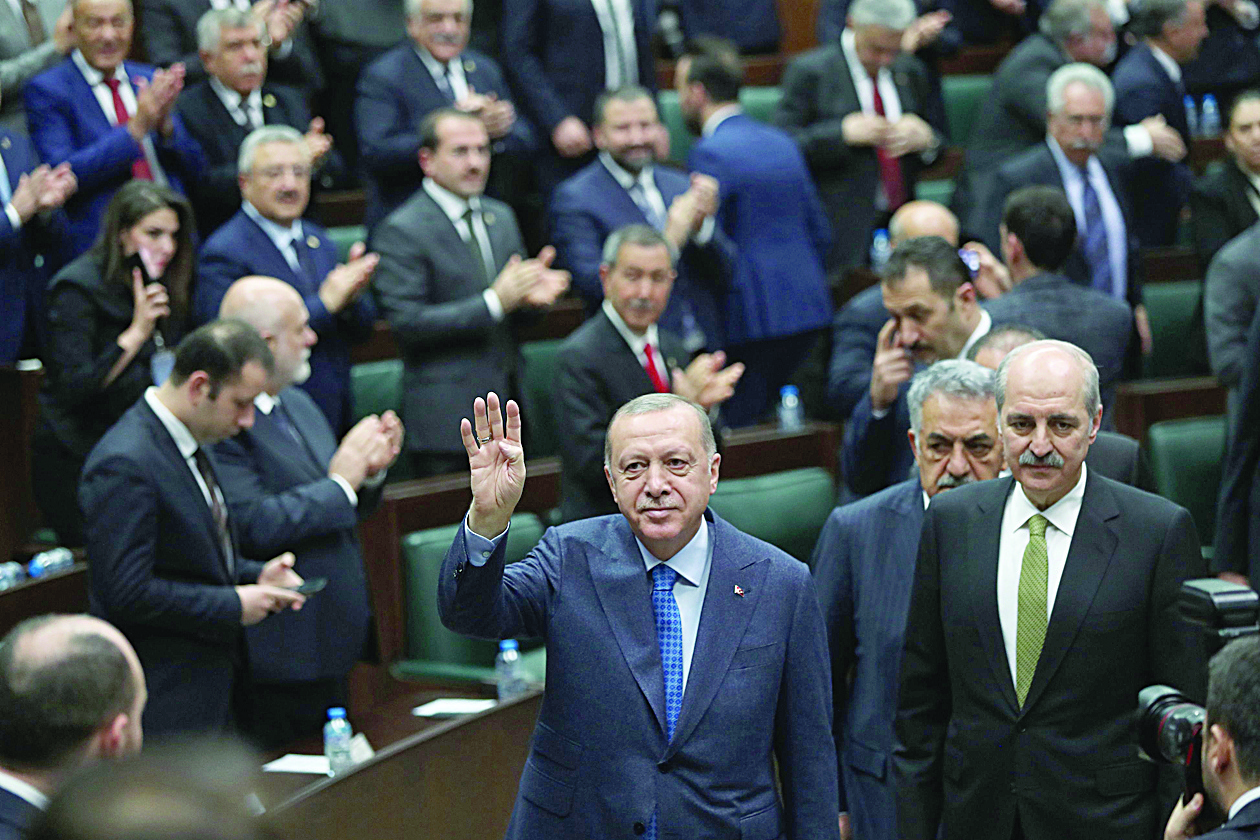
ANKARA: President Tayyip Erdogan appeared in Turkey's parliament with an extra cameraman yesterday - an aide with a thermal camera checking people he met for fever which could be linked to coronavirus. The aide scanned journalists and politicians who crowded around the Turkish leader as he arrived in parliament on the day that the first coronavirus case was confirmed in Turkey. Erdogan later told members of his AK Party that Turkey was taking appropriate steps to protect all citizens. "No virus is stronger than our measures," he said.
A presidential official said the thermal camera could be used in Erdogan's future public appearances to limit his exposure to coronavirus. The 66-year-old president has shunned handshakes with dignitaries this week, putting his hand over his heart instead at meetings with European Council President Charles Michel in Brussels and with newly accredited ambassadors in Ankara. On both occasions he gave a one-word explanation for his actions: "Corona!"
Meanwhile, Turkey confirmed its first case of the coronavirus yesterday, becoming the last major economy to report an outbreak after taking what the World Health Organization (WHO) described as "vigilant, cautious" measures to delay the disease. Turkey's tourism sector, which accounts for about 13% of its economy, stepped up calls on the government for financial help to deal with the expected negative impact of the outbreak.
Health Minister Fahrettin Koca confirmed yesterday that a Turkish man with a high fever and cough had been diagnosed as having the virus and had been isolated. "This is the first case confirmed in our country. The findings show the diagnosis of coronavirus was made early and if the virus has spread it is limited," he told a news conference. "Our country is prepared for this, all measures to prevent the spread (of the virus) have been taken," he said, referring to comprehensive screening and testing programs.
Until the announcement, Turkey - a member of the Group of 20 biggest global economies and a major transit hub between Europe, Asia and Africa - had officially managed to avoid an outbreak, though all its neighbors except war-ravaged Syria had reported cases. Iran has an especially high number of cases. In an interview hours before the announcement of the first case, Irshad Shaikh, the WHO Health Security Program Leader in Turkey, praised Ankara's preventative measures and good organization, saying it had been "very lucky, vigilant and cautious".
Gearing up for battle
The WHO has given guidance globally, and is in contact with health officials in Turkey on legislation, risk management, testing and screening practices, among other issues, he said. "In all those areas…Turkey has taken that to heart." "Turkey is an advanced country, and most of the systems were already there. What was needed was to make sure they are quick to this outbreak," Shaikh told Reuters. Turkish Tourism Minister Mehmet Nuri Ersoy and tourism officials met in Ankara just before the first case was announced to discuss possible repercussions of the outbreak.
The Tourism Evaluation Council said it suggested financial support for tour operators and airlines, reductions in utilities costs, and measures to increase bookings. The sector is "starting to be negatively impacted", it added. Ankara has said that all 81 of its provinces are geared up to handle a potential outbreak and that it has set up seven test centers across the country. Turkey says it has developed its own testing kit, which it is also exporting to other countries, to get faster results. - Agencies











